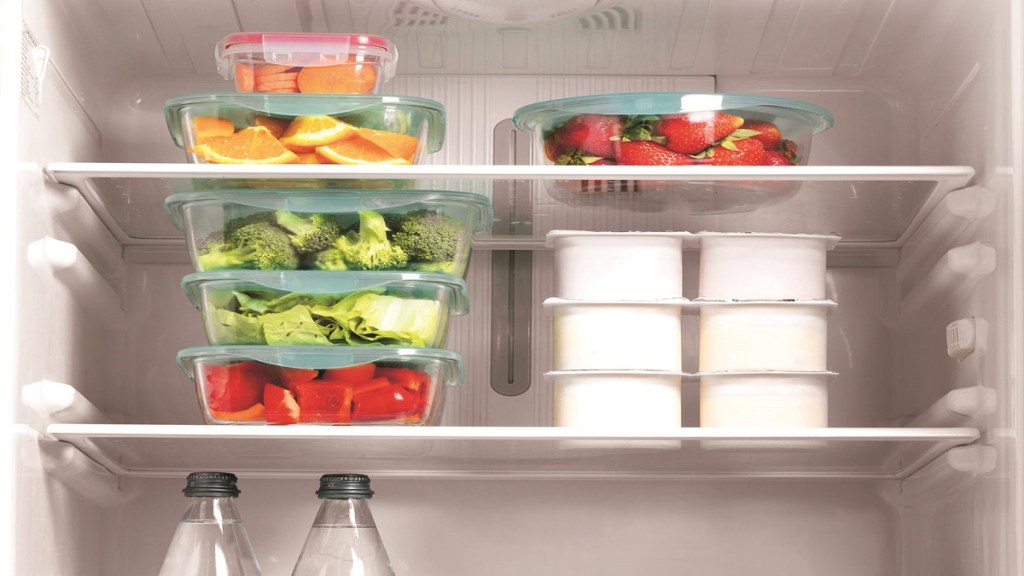Freezing is one of the oldest ways to preserve food. In the earlier days, only salt, sugar and ice were frozen so that they could be made available in the next season. But today, storing food — whether it is fruits, vegetables, snacks or meals – in the refrigerator has become a way of life.
Despite this widespread practice, frozen food often gets a bad name. This is primarily because people think it won’t taste as good or be as nutritious. But ask experts, and they would say frozen food can, in fact, be a better choice for both taste and nutritional value.
“The lesser the exposure to chemicals, the better a food item can be in terms of nutrition. Vegetables, fruits, non-vegetarian food items and nuts can be all frozen and this method is a good alternative in the absence of fresh foods like in extreme weather conditions (in the mountains), or in far-off places where cultivation or preparation of food is not possible (in extremely cold weather conditions like in Antarctica),” says Shweta Gupta, unit head — dietetics, Fortis Hospital, Shalimar Bagh, New Delhi.
Dr Yashika Dua of Artemis Lite Hospital, Gurugram, says it’s a myth that frozen foods suffer loss of nutrients. According to her, freezing retains nutrients better than fresh produce that has been sitting for a while. “Frozen foods are just as healthy as fresh ones as they are typically frozen at their peak ripeness. When cooked properly, frozen produce can be just as delicious as fresh options. In fact, freezing can help in preserving nutritional value by halting enzyme activity,” she says.
For instance, frozen berries can have higher antioxidant levels in comparison to the fresh ones that have been stored for a while. Taste and quality can be maintained if proper freezing methods are used. For example, flash-freezing seafood helps maintain its taste and texture. “However, improper freezing or thawing can lead to texture changes and loss of quality,” adds Dr Dua.
Several studies indicate that frozen fruits and vegetables can be just as nutritious as the fresh ones, with some cases even showing higher nutrient levels due to quicker preservation. A report by the University of Georgia found that certain frozen produce had higher antioxidant content compared to their fresh counterparts. The International Journal of Food Sciences and Nutrition published a research highlighting the nutritional quality of frozen produce as well-preserved. When chosen wisely, frozen foods can offer good and nutritious options to maintain a healthy diet, it said.
In another research, it has been noted, how almost 40% of all food in the United States is going uneaten, and food waste is an important and relevant concern there. A literature review conducted by Cornell University explored the rate of waste among frozen foods in grocery stores and households. This analysis of multiple studies affirmed that, in general, frozen foods are wasted less than their fresh counterparts at both the retail and consumer levels. While the rates of food waste vary among different types of food, among the fruits and vegetables studied, the frozen products are much less likely to be discarded than the fresh equivalent. When refrigerated foods are discarded, it is commonly due to concerns about spoilage or excess leftovers. Freezing food can help to address these challenges by extending the shelf-life of products and allowing families to prepare exactly what they need.
IQF technology
IQF stands for individual quick freezing. It is a common freezing method used in the food service industry and consists of freezing individual pieces of food separately from the other pieces at extremely low temperatures.
As per the India Snacking Report by Godrej Yummiez, a brand of frozen ready-to-cook products, not many consumers are aware of the IQF technology in India and there is a huge scope to educate consumers about its role and importance.
Mohit Marwaha, AVP, Yummiez, Godrej Tyson Foods, says, “The application of freezing technology is expanding rapidly when it comes to food. All items should use IQF or frozen quickly in a short time to lock the taste, freshness and nutritional value of a product and help in maintaining its texture and mouth-feel. Frozen items should always be kept at -18°C or below.”
Marwaha points out the top misconceptions about frozen foods. While the trend among consumers is shifting toward greater acceptance of frozen foods, this category remains relatively underexplored.
“Today, consumers are increasingly mindful of their purchasing decisions. But the myth is that if the food item is frozen, it has preservatives. The general assumption is that frozen foods have less viable options and they are more expensive than restaurant meals. The fight between frozen and fresh foods is largely biased,” adds Marwaha.
Raw vegetables are harvested in peak maturity to provide best nutritional value, taste and quality. Since these vegetables are harvested from farms and directly come to the plant for cleaning and freezing in a short time period, it maintains better nutritional value compared to fresh vegetables that spend significant time in farms, wholesale markets, warehouses, in transit and retail markets before reaching consumers and continuously lose nutrients with time after harvest.
Meanwhile, the India Snacking Report focuses on the attitudes and perceptions towards frozen snacks. According to the report, 52% of Indians prefer frozen snacks/foods as they feel they are more hygienic than buying them readymade from shops, while 62% limit their snacking consumption due to the presence of preservatives. For 44%, the presence of preservations remains to be a top concern.
On a commercial level, Mother Dairy, too, uses IQF technology for its frozen vegetables sold through Safal outlets. “The Safal frozen vegetables are categorised as the best alternative to fresh vegetables. They do not require the hassle of cutting or chopping, making it easy to cook, and consumers can relish their favourite recipe round-the-year, even during the off-season. Additionally, they are free of the seasonal aberrations. As per industry estimates, the frozen vegetables market in India is expected to grow at a CAGR of over 16% in the next five years,” says Manish Bandlish, MD, Mother Dairy Fruit & Vegetable.
While fresh food offers the allure of immediate consumption, frozen food provides the convenience of longer storage, reduced waste and often comparable nutritional value. “We have observed how IQF technology has been a gold standard for freezing food as it allows food to be frozen quickly and evenly, which prevents the formation of large ice crystals which also preserves the natural flavour, texture, and colour of the food. IQF frozen foods are more shelf-stable than traditionally frozen foods allowing them to remain fresher for a longer period,” says chef Ajay Chopra.
The culinary sector has been significantly impacted by IQF technology, which gives chefs access to high-quality, nutritious, and versatile ingredients that simplify cooking processes and elevate the overall dining experience. “Freezing itself is a natural preservation method that slows down the growth of microorganisms, which helps in preserving the quality and safety of the food. IQF is a method of freezing individual food items quickly and separately, rather than freezing them together in a block. It helps reduce food waste by extending the shelf life of perishable ingredients,” agrees chef Rakhee Vaswani.
MYTH vs REALITY
Frozen foods lose nutrition: In reality, freezing can actually help in retaining nutrients by preserving the food and maintaining its freshness
Frozen foods lack flavour: In reality, modern freezing techniques can help in maintaining taste and texture
Preservatives are necessary: Not all frozen foods need preservatives. Proper packaging and quick freezing can help in maintaining quality of food without additives
STORING FROZEN FOOD
* Store frozen foods at the recommended temperature and use them within shelf life to maintain quality
*Fruits and vegetables can be blanched and frozen to keep nutrients locked
* Meats and poultry can be divided into portions and wrapped tightly to prevent spoilage
* Fish and seafood can be kept vacuum-sealed or wrapped properly to maintain freshness
* Dairy products like cheese can be frozen but others like milk may change in texture
* Frozen desserts with natural ingredients can be good to freeze
— Dr Yashika Dua, Artemis Lite Hospital, Gurugram








